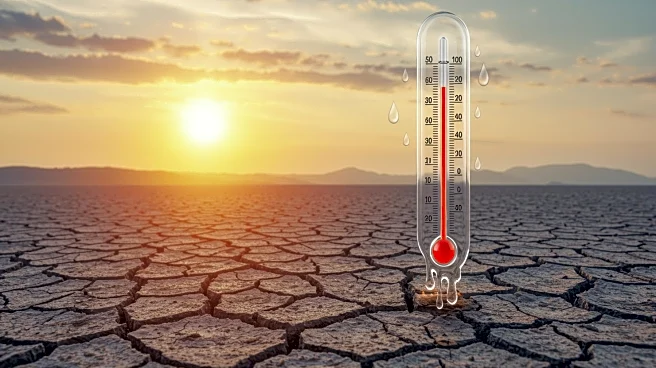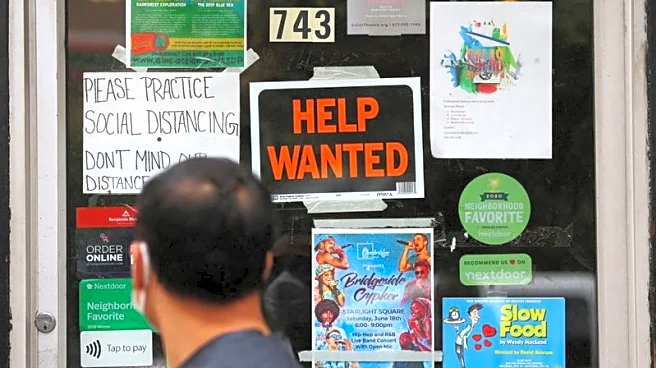What's Happening?
The World Health Organization (WHO) and the World Meteorological Organization (WMO) have released a report emphasizing the need for better protection for workers against extreme heat, a growing concern due to climate change. The report highlights that millions of workers are exposed to heat stress, which not only affects their health but also their productivity. The WHO's director of environment, climate, and health, Rüdiger Krech, stressed the urgency of the situation, noting that prolonged exposure to high temperatures can lead to severe health issues such as heat-related stress, stroke, and kidney failure. The report calls for collaboration among governments, employers, and workers to develop adaptation strategies. It also notes that heatwaves, once rare, are becoming more frequent, with the last decade recording the warmest temperatures. The report points out that for every degree rise above 20°C, productivity falls by 2%, and workplace accidents increase, as seen during Europe's 2023 heatwave.
Why It's Important?
The implications of this report are significant for industries and economies worldwide, particularly in sectors like construction and agriculture, where workers are most vulnerable to heat stress. The decrease in productivity and increase in workplace accidents due to extreme heat can have substantial economic impacts. Moreover, the health risks associated with heat stress can lead to increased healthcare costs and loss of workforce efficiency. The report underscores the need for investment in adaptation measures, such as improved ventilation and air conditioning in workplaces and schools, to mitigate these risks. Failure to address these issues could result in long-term economic and social challenges, as extreme heat becomes more common due to climate change.
What's Next?
The report suggests that adaptation strategies should be developed in consultation with various stakeholders, including governments, employers, and local councils. Some European countries have already begun implementing measures, such as pausing construction work during peak heat hours. The WHO emphasizes the need for investment in infrastructure to cope with increased heat, warning that neglecting these adaptations could lead to greater economic losses in the future. The report also calls for consideration of practical solutions, such as adapting school uniforms to be more suitable for heatwaves, highlighting the need for comprehensive planning to address the challenges posed by extreme heat.
Beyond the Headlines
The report raises ethical and social considerations, particularly regarding the responsibility of employers to ensure safe working conditions. It also highlights the potential for increased social inequality, as those in lower-income jobs or regions may be more exposed to heat stress without adequate protection. The call for adaptation also touches on cultural shifts, such as changing work hours or school schedules to accommodate rising temperatures. These changes may require societal acceptance and adjustments in lifestyle and work habits.












